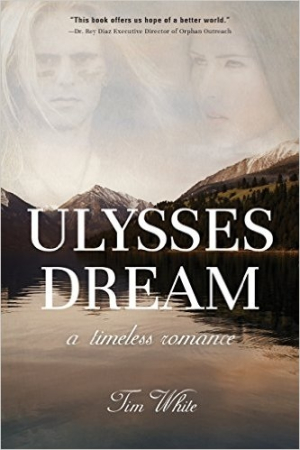It looks like you've stumbled upon a page meant to be read by our code instead of viewed directly. You're probably looking for this page.

Ulysses Dream
A Timeless Romance
- 2016 INDIES Finalist
- Finalist, Religious (Adult Fiction)
Raw, unfiltered humanity comes through this novel that draws upon Homer’s epic.
Like the ancient tale of the great warrior Ulysses whose journey home from war was filled with twists and turns, Ulysses Dream is a bold, personal, and precisely wrought epic that deals with the all-too-real daily occurrences of human trafficking and exploitation right here in the United States.
Penelope is a woman of Honduran descent who was kidnapped by the notorious Central American gang MS-13 as a child and forced into prostitution. She manages to escape the gang’s clutches, only, it seems, to become another lost statistic.
The young girl meets a Nez Perce boy—the Ulysses of this tale—and together they claw their way through their version of childhood. As they grow, they fall in love and have a child—yes, Odyssey readers, their son is named Telemachus—but the Vietnam War calls Ulysses away, leaving Penelope to defend herself against the evils of the world. Ultimately, there is retribution and revenge, as Penelope takes up arms against the traffickers, finding satisfaction in removing at least one terror from the many that ravage innocent people across the world.
Ulysses Dream may be fiction, but it borrows heavily from reality. Child trafficking from Latin America to the United States is a well-documented problem, and the text’s descriptions of abandoned children living in a city dump make Lord of the Flies look tame by comparison. Children seek refuge in the stinking hell, or are cast there to die, and Penelope recalls the garbage dump as a place where “God does not hear our prayers.”
Told from Penelope’s point of view, the story is a raw, unflinching look at the seedy, violent underbelly of fearsome gangs and unscrupulous profiteers. The author drew on his own firsthand observations from working with the urban poor in Honduras and convincingly demonstrates that illegal immigration is a far deeper issue than many politicians portray it to be.
As a modern-day epic, the book draws on ancient history as well, using names of characters from Greco-Roman myth and legend. In Homer’s tale, Penelope was the wife of Odysseus (Ulysses in Latin), and they have one son, Telemachus. That same family dynamic appears here as well, and though it feels a little forced, especially when the other characters have distinctly Latino names, it serves the author’s literary trope of reinforcing the notion that tragedies are not the stuff of legend; they are everyday occurrences. But, as in those ancient stories, there is hope. Ulysses and Penelope are representatives of two marginalized groups, and together they offer a new, nuanced definition of patriotism and pride.
This book combines many elements from various genres—military fiction, ancient mythology, historical fiction, and religion—and explores how themes of marginalization and victimization are never cut-and-dried. Fantasy does not reside in these pages; raw, unfiltered humanity does.
Reviewed by
Barbara Nickles
Disclosure: This article is not an endorsement, but a review. The publisher of this book provided free copies of the book and paid a small fee to have their book reviewed by a professional reviewer. Foreword Reviews and Clarion Reviews make no guarantee that the publisher will receive a positive review. Foreword Magazine, Inc. is disclosing this in accordance with the Federal Trade Commission’s 16 CFR, Part 255.